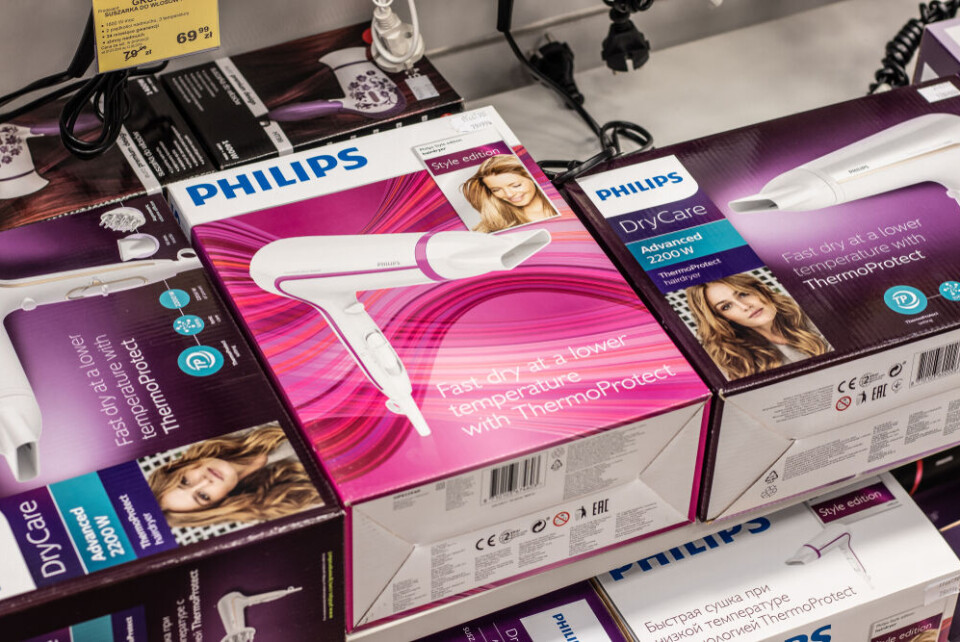-
Mysterious boom rattles residents in south-west France
Local community turns to social media for answers
-
France tightens reimbursement rules for flight delays or cancellations
New measures include mandatory mediation and new claim procedures
-
What snow conditions look like for skiers across French Alps and Pyrenees
Ski resorts are expected to get busier as school holidays begin this weekend
Smartphones, hairdryers, vacuums: Food not only cost rising in France
New analysis of non-food products has found that the cost of electronic goods and DIY and gardening tools has risen by as much as 137% over the past few years

Prices of non-food items are rising in France with average rises of 3%, a new comparison study has found. Some products, such as smartphones, are up by as much as 137% since 2018.
Price rises have significantly affected white goods and electronic equipment, as well as food and energy (the latter of which rose by 28.9% in March) in the past year, new analysis by the comparison service Le Dénicheur shows.
The analysis looked at the prices of 500-1,000 products per category across thousands of online shops, for smaller items; and between 1,000-10,000 products for the largest categories. It compared prices in 2022 compared to 2021, but also made comparisons between 2018 to 2022.
Food prices have risen for 81% of products sold in supermarkets, figures from analysts NielsensIQ suggest.
But non-food items have also seen a rise since 2021, figures show, of an average of 2.1%. Rises have been noted for items including smartphones, hairdryers, vacuum cleaners, and DIY and gardening tools.
With an average price of €708, smartphones have risen in price the most over a year (up 69%). Over the past four years, the price has risen by 137% on average (with the average price in 2018 just €299).
Prices in this category have been pushed up not only by inflation but also by the increase in specifications of the devices themselves, including the touchscreen iPhone at €1,000, and the Samsung Z Flip foldable phone, at €2,000.
Yet, average price rises of 3% since 2021 – and in some categories much more – have also been seen among hairdryers (an increase of 25%), chainsaws (14%), sanders (11%), hoovers (7%), espresso machines (6%) and portable loudspeakers (6%).
Barbecues and lawnmowers have risen 6% in a year, while electric toothbrushes have risen 5%, and washing machines by 4%.
Many of these price rises can be explained by rising raw material costs, the increase in petrol costs affecting transport carriers, and the shortage of semiconductors. Taiwanese company TSMC increased the price of its most advanced chips by 10%, and its least advanced by 20% in 2021.
A comparison between the years 2018 and 2022 reveals even more significant increases. As well as smartphones (up 137%), hoovers have risen by 42% for an average cost of €289, hairdryers by 38% (€110) and electric toothbrushes by 37% (€118).
These can be explained by the increased sophistication of many of these products, such as the Dyson hoovers and robot models.
However, the analysis may be skewed by higher-price products remaining on sale, as the lower-price ones sell out more quickly.
Romain Gavache, country manager France at Le Dénicheur, explained: "When prices rise sharply, consumers shop around to find the cheapest products, which are bought first."
It comes as inflation has also contributed to rising prices, with an average rise of 4.5% across all goods and services in March this year, figures from statistics bureau Insee show.
Read more: Inflation in France set to reach 3%: Tips for saving on prices
Supermarkets have begun warning of price rises in certain sectors, including E. Leclerc, which this week warned that the price of toilet paper was likely to rise significantly, as well as clothing. Within the food sector, sunflower oil, meat and pasta were also expected to rise considerably.
Related articles
Price of toilet paper to rise significantly, says boss of E. Leclerc
Inflation in France set to reach 3%: Tips for saving on prices
Warning that many French supermarket prices are set to rise sharply
























